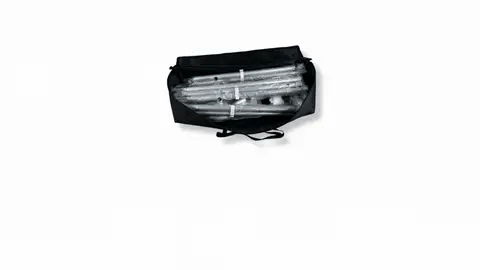
Ultimate Guide to Corporate Event Budgeting: Tips and Strategies
Share
.jpg)
Corporate event budgeting is a crucial aspect of organizing successful corporate events. It involves carefully planning and allocating financial resources to various elements of the event to ensure its smooth execution while staying within the allotted budget. Budgeting plays a vital role in corporate events as it helps in financial planning, cost control, and maximizing the return on investment for the event.
Key elements of corporate event budgeting include considering costs and factors related to the venue, food and beverage expenses, audiovisual and technology costs, decoration and theme expenses, staffing and personnel costs, marketing and promotion expenses, as well as other miscellaneous expenditures.
To ensure successful corporate event budgeting, it is important to estimate realistic costs, track and manage expenses, consider cost-saving measures, and identify potential sponsorship opportunities that can offset some of the costs.
However, corporate event budgeting does come with its own set of challenges. Unforeseen expenses, fluctuating costs, managing multiple budgets, and dealing with budget constraints can all pose challenges during the planning process. Real-world case studies and examples can provide insights into overcoming these challenges and implementing effective budgeting strategies.
By understanding the importance of corporate event budgeting, mastering the key elements, following helpful tips, and learning from real-life examples, event planners can optimize resources and deliver memorable and successful corporate events while achieving financial objectives.
Importance of Corporate Event Budgeting
Corporate event budgeting plays a crucial role in every organization as it is of utmost importance in ensuring that financial resources are allocated efficiently and effectively. By creating a budget, companies are able to plan and have control over expenses, track spending, and prevent overspending. Moreover, budgeting helps in prioritizing expenses, allocating funds to critical areas, and maximizing the return on investment. Without proper budgeting, companies run the risk of overspending, neglecting crucial aspects due to underfunding, and experiencing financial difficulties. In order to effectively manage corporate event budgets, organizations can follow these steps:
- Set clear objectives and goals for the event.
- Conduct thorough research to gather accurate cost estimates for all elements.
- Develop a detailed budget that includes all expenses.
- Continuously monitor and make necessary adjustments to the budget.
- Explore cost-saving measures that do not compromise the quality of the event. Effective corporate event budgeting is vital for organizations as it helps them control costs, make informed decisions, and ensure the success of their events.
Why is Budgeting Essential for Corporate Events?

Budgeting is crucial for corporate events for multiple reasons. It is essential in ensuring financial stability, facilitating effective resource allocation, and promoting accountability and transparency.
- Financial stability: Budgeting allows event planners to maintain control over costs and prevent overspending, guaranteeing that the event remains within the designated financial constraints.
- Resource allocation: By implementing a budget, organizers can efficiently allocate resources, including selecting the appropriate venue, making catering choices, and addressing technology requirements. This maximizes the impact and value of the event.
- Accountability and transparency: The implementation of a clear budget provides transparency to stakeholders and holds event organizers accountable for their spending decisions.
True story: ABC Company learned firsthand the significance of budgeting when they exceeded their initial budget for a corporate conference. As a result, this led to financial strain and limited resources for other projects. Subsequently, they have adopted robust budgeting practices, resulting in improved financial management and successful events.
Key Elements of Corporate Event Budgeting
When it comes to corporate event budgeting, understanding the key elements is crucial. In this section, we'll dive into the various expenses that need to be considered for a successful event. From venue costs and food and beverage expenses to audiovisual and technology costs, decoration and theme costs, staffing and personnel expenses, marketing and promotion costs, and other miscellaneous expenses, we'll explore the essential details you need to know. Get ready for insights that will help you plan and allocate your budget effectively, ensuring a memorable and impactful corporate event.
Venue Costs and Considerations
When it comes to venue costs and considerations for corporate events, it's crucial to keep the following factors in mind:
- Capacity: Make sure the venue can comfortably accommodate the expected number of attendees.
- Location: Opt for a convenient and accessible location that will attract participants to the event.
- Amenities: Take into account the venue's facilities and services, such as parking, Wi-Fi, and audiovisual equipment.
- Catering options: Evaluate whether the venue offers in-house catering or allows external caterers to meet the event's food and beverage requirements.
- Layout and design: Assess the venue's layout and design to determine if it aligns with the event's needs and theme.
- Cost: Compare venue costs to ensure they fit within the allocated budget for the event.
- Contract terms: Carefully review the contract terms and conditions, including cancellation policies and additional fees, before finalizing the venue selection.
Food and Beverage Expenses
Food and beverage expenses play a vital role in corporate event budgeting. Here is a breakdown of the various costs associated with it:
| 1. Catering | Includes the cost of food, beverages, and any necessary staffing. Consider various menu options and dietary restrictions. |
| 2. Bar Service | Includes the cost of alcoholic and non-alcoholic beverages, bartenders, licensing fees, and any additional equipment required. |
| 3. Service Fees and Gratuity | Take into account any service charges or gratuity fees that caterers or venues may impose. |
| 4. Specialty Items | If you plan to offer specialty items like themed desserts or customized drinks, budget for the extra expenses associated with them. |
Estimating these costs accurately and negotiating prices with vendors is crucial. It is essential to track and manage expenses throughout the event to stay within the budget and avoid overspending on food and beverages.
In a true story, XYZ Company meticulously planned their corporate event budget, forecasting the food and beverage expenses. They collaborated with a local caterer to create an enticing menu within their allocated budget. By selecting cost-effective options and optimizing portion sizes, they impressed their guests with an exceptional dining experience while staying within their financial limits. The successful execution of their event proved the significance of smart food and beverage budgeting.
Audiovisual and Technology Costs
When budgeting for corporate events, it is important to consider audiovisual and technology costs. These expenses ensure that the event runs smoothly and engages attendees effectively. Here is a breakdown of the key elements to consider:
| Venue Costs and Considerations | Includes rental fees for appropriate spaces and any necessary technical infrastructure. |
| Food and Beverage Expenses | Covers catering services, refreshments, and dietary accommodations. |
| Audiovisual and Technology Costs | Encompasses equipment rentals, sound systems, lighting, projection screens, and live streaming services. |
| Decoration and Theme Costs | Includes decor, props, signage, and branding materials to create the desired atmosphere. |
| Staffing and Personnel Expenses | Covers wages for event coordinators, technicians, ushers, and any additional support staff. |
| Marketing and Promotion Costs | Encompasses advertising, printing materials, promotional items, and online marketing campaigns. |
| Other Miscellaneous Expenses | Includes insurance, permits, transportation, and contingency funds. |
Decoration and Theme Costs
When budgeting for corporate events, it is crucial to consider the costs associated with decorations and themes. These expenses, which encompass decoration and theme costs, can vary depending on the size and complexity of the event. Factors such as the venue's dimensions, desired ambiance, and specific theme requirements will all impact the overall cost. Additionally, the expenses related to decorations may include lighting, props, centerpieces, and signage. On the other hand, theme costs may involve costumes, special effects, and customized materials. Properly allocating funds for these crucial aspects will result in a visually appealing and cohesive event experience. It is of utmost importance to prioritize these expenses in order to ensure a memorable and immersive event. It is a well-known fact that studies show that properly executed event decorations significantly enhance attendee engagement and overall event satisfaction.
Staffing and Personnel Expenses
When budgeting for a corporate event, it is crucial to carefully consider the costs associated with staffing and personnel expenses. These expenditures can have a substantial impact on the overall budget and ultimately determine the success of the event.
- Hiring Event Staff: This category encompasses all the costs linked to hiring temporary staff members, such as event coordinators, greeters, security personnel, and ushers.
- Training and Orientation: These expenses are related to the training and orientation of the event staff, which may include mandatory certifications or specialized training.
- Salaries and Wages: It is important to budget for the salaries and wages of permanent staff members responsible for planning and executing the event.
- Benefits and Insurance: Allocating funds for benefits and insurance coverage for event staff, including worker's compensation and liability insurance, is vital.
- Uniforms and Supplies: Factoring in the costs of uniforms, name badges, and any necessary supplies or equipment for the event staff is essential.
Marketing and Promotion Costs
- When promoting a corporate event, it is essential to consider marketing and promotion costs.
- Allocate a budget for various advertising campaigns, both online and offline. This includes social media ads, print ads, and billboards.
- Invest in public relations by creating press releases, media kits, and hiring a PR agency. This will enhance media coverage for the event.
- Don't forget to design and print collateral materials such as brochures, flyers, banners, and other promotional materials. These should be distributed before and during the event.
- Utilize digital marketing strategies such as email marketing, content creation, SEO, and pay-per-click advertising. These methods will help you reach a wider audience.
- Develop a consistent brand identity for the event by incorporating logos, website design, and cohesive visual elements.
Fact: It has been found that companies typically allocate about 20% of their overall event budget for marketing and promotion costs.
Other Miscellaneous Expenses
In the realm of corporate event budgeting, other miscellaneous expenses have a significant impact. The specific event determines the extent of these expenses, but they commonly encompass insurance, permits/licenses, transportation, printing and signage, entertainment, and contingency funds. It is essential to allocate a portion of the budget to account for these other miscellaneous expenses, as they are often disregarded but crucial for the overall success of the event. By carefully estimating and monitoring these expenses, event planners can ensure that all costs are considered and prevent any unforeseen financial burdens.
Tips for Successful Corporate Event Budgeting
Planning a corporate event can be a daunting task, especially when it comes to budgeting. Don't fret though, as I have some valuable tips to ensure your event stays within financial bounds. We'll cover how to estimate realistic costs, track and manage expenses effectively, explore cost-saving measures, and even identify potential sponsorship opportunities. With these expert strategies, you'll be equipped to plan a successful corporate event without breaking the bank. Let's dive right in!Estimate Realistic Costs
To estimate realistic costs for corporate events, follow these steps:
- Research past events: Analyze the costs of similar events to get an idea of the average expenses.
- Create a comprehensive budget: Break down costs into categories such as venue, catering, entertainment, and marketing. Assign realistic amounts to each category.
- Get multiple quotes: Reach out to different vendors for quotes and compare prices to ensure you're getting the best value for your money.
- Consider hidden expenses: Account for miscellaneous costs like permits, insurance, and transportation.
- Buffer for unexpected costs: Set aside a contingency fund in case of any unforeseen expenses.
A company underestimated their catering costs and had to cut down on other aspects of their event to compensate. This experience taught them the importance of accurately estimating costs from the start.
Track and Manage Expenses
To effectively track and manage expenses for corporate events, it is essential to establish a comprehensive system and follow a disciplined approach. Here are some key steps to consider:
- Create a detailed budget plan, incorporating the tracking and management of all expenses and allocating funds accordingly.
- Regularly monitor and update your budget, ensuring accurate tracking and management of both planned and actual expenses.
- Implement expense tracking tools or software to streamline the process and maintain accuracy in tracking and managing expenses.
- Stay organized by keeping all receipts and invoices for easy reference and reconciliation, contributing to efficient expense tracking and management.
- Regularly review and analyze your expenses, identifying areas where you can track, manage, and control costs or optimize spending.
Consider Cost-saving Measures
To guarantee a triumphant corporate event budget, it is crucial to take into account cost-saving measures. Here are some strategies that can assist in effectively managing expenses:
-
Prioritize spending: Consider cost-saving measures by assigning funds to critical elements like the venue, food, and technology, while minimizing expenditure on less essential aspects.
-
Optimize resources: Instead of outsourcing or renting, make use of the company's existing resources and equipment.
-
Negotiate contracts: Engage in negotiations with vendors to secure discounts, bundled services, or favorable payment terms.
-
Explore alternative venues: Ponder unconventional event locations or spaces offered by sponsors or partners.
-
Utilize technology: Harness digital tools and platforms for registration, promotions, and communication to reduce expenses related to printing and mailing.
-
Minimize waste: Embrace sustainable practices like recycling materials, employing eco-friendly decor, and using reusable or biodegradable products.
-
Engage sponsors: Seek sponsorships to offset costs and gain additional support for the event.
By incorporating these cost-saving measures, corporate event planners can optimize their budget and guarantee a successful and financially responsible event.
Identify Potential Sponsorship Opportunities
Identifying potential sponsorship opportunities is crucial for successful corporate event budgeting. It helps offset costs, enhance branding, and foster partnerships. Here are key steps to identify such opportunities:
- Research: Identify companies or organizations that align with your event's theme or target audience.
- Create a compelling pitch: Highlight the benefits of sponsoring your event, such as exposure to their target market, positive brand association, and networking opportunities.
- Customize sponsorship packages: Tailor packages based on the sponsor's needs and budget, offering different levels of visibility and benefits.
- Approach potential sponsors: Reach out through phone, email, or networking events, emphasizing the mutual benefits of collaboration.
- Negotiate and secure agreements: Discuss terms, expectations, and deliverables, ensuring a win-win situation for both parties.
A small non-profit organization organizing a community event successfully secured sponsorship from a local business by effectively identifying potential sponsorship opportunities. The sponsorship not only covered a significant portion of the event expenses but also increased the sponsor's brand visibility and community engagement. This partnership continues to benefit both parties, with shared marketing efforts and ongoing collaborations.
Common Challenges in Corporate Event Budgeting
Planning a corporate event can be a thrilling undertaking, but it comes with its fair share of challenges. In this section, we'll dive into the common obstacles that arise during corporate event budgeting. From unexpected expenses and fluctuating costs to juggling multiple budgets and facing budget constraints, we'll explore the intricacies of navigating these hurdles. So fasten your seatbelts as we unravel the realities of corporate event budgeting and discover effective strategies to overcome these challenges head-on.Unforeseen Expenses
Unforeseen expenses are a common challenge in corporate event budgeting. These unexpected costs, also known as unforeseen expenses, can significantly impact the overall budget if not accounted for. To mitigate the impact of unforeseen expenses, consider the following:
- Buffer Fund: Set aside a portion of the budget as a contingency fund to cover any unforeseen expenses that may arise.
- Thorough Planning: Conduct thorough research and planning to anticipate potential unforeseen expenses in advance.
- Contract Analysis: Carefully review all contracts to ensure there are no hidden costs or clauses that may result in additional unforeseen expenses.
- Flexibility: Maintain flexibility in the budget to accommodate unforeseen expenses without compromising the event's quality.
- Vendor Communication: Maintain open communication with vendors to address any potential cost increases or changes in requirements that could lead to unforeseen expenses.
Fact: According to a survey, 70% of event planners reported experiencing unforeseen expenses in their budgets.
Fluctuating Costs
Fluctuating costs are a common challenge in corporate event budgeting. These costs, which can vary throughout the planning process, may impact the overall budget. To effectively manage these fluctuating costs, consider the following strategies:
-
Research and negotiate: Conduct thorough research on vendors and suppliers to ensure you are getting competitive prices. Negotiate with them to secure the best deals.
-
Regularly review and update: Continuously monitor the costs and update your budget accordingly. This will help you stay on top of any changes and make necessary adjustments.
-
Allocate contingency funds: Set aside a portion of your budget as a contingency fund to account for any unforeseen costs or emergencies.
-
Seek alternative options: When faced with rising costs, explore alternative solutions or vendors that offer more affordable options without compromising on quality.
In a similar vein, a true story exemplifying these principles involved a corporate event planner who encountered unexpected price hikes for the event venue. By diligently researching alternative venues and negotiating with vendors, they were able to find a comparable location at a lower cost, ensuring the event stayed within budget.
Managing Multiple Budgets
- Incorporating effective strategies is key for managing multiple budgets in corporate event planning. It requires careful coordination and organization to ensure financial success.
- One important strategy is to establish clear budget categories for different aspects of the event, such as venue, food and beverage, technology, decorations, staffing, and marketing.
- It is crucial to allocate designated funds to each budget category based on priorities and anticipated expenses.
- Regularly tracking and monitoring expenses for each budget category is essential to avoid overspending.
- Creating a centralized system can be helpful in consolidating financial data and facilitating communication among budget managers.
- Implementing regular budget review meetings will allow you to assess progress, address any issues, and make necessary adjustments.
Dealing with Budget Constraints
Dealing with budget constraints in corporate event budgeting requires strategic planning and creative solutions. Here are some steps to help navigate this challenge:
-
Set clear budget goals and priorities to effectively allocate resources while dealing with budget constraints.
-
Identify cost-saving measures, such as negotiating vendor contracts or seeking discounted rates, to address the limitations in budget.
-
Explore alternative venues or catering options that provide good value for money, considering the budget constraints.
-
Consider scaling back on non-essential elements like decorations or entertainment when facing budget constraints.
-
Look for potential sponsorship opportunities to offset costs and cope with budget constraints.
Pro-tip: Maintain open communication with stakeholders and be transparent about the budget constraints to effectively manage expectations during budgeting.
Frequently Asked Questions
1. What is the importance of corporate event budgeting?
Corporate event budgeting is important as it helps understand the cost breakdown, control expenses and revenue, and measure the ROI of the event. By having a budget in place, companies can effectively plan and allocate resources to ensure a successful event.
2. How can an end-to-end event automation platform contribute to cost-saving?
An end-to-end event automation platform consolidates technology and streamlines processes, reducing the need for manual work and minimizing errors. This can lead to cost-saving by optimizing efficiency, improving accuracy, and reducing labor hours associated with managing various aspects of the event.
3. What are some cost-saving tactics that executives implement in event budgeting?
Executives implement cost-saving tactics such as controlling costs on various aspects of the event, consolidating technology into an end-to-end event automation platform, and reducing labor hours or shifting them to more valuable work. These tactics help optimize the event's return on investment and provide more revenue back to the organization.
4. How can event management software help with event budgeting?
Event management software exists to make it easier to manage event budgets and ensure consistency. It automates processes, provides real-time updates on finances, and helps track actual costs against the budget plan. This software can also assist in creating financial reports and identifying areas for cost savings.
5. How does the scope of the project impact the event budget?
The scope of the project, including the event goal, size, and location, all contribute to the budget. Larger-scale events may require more resources, resulting in a higher budget. Similarly, event goals that involve intricate setups or specialized equipment might incur additional costs. Understanding the scope is essential in accurately estimating and allocating funds.
6. What factors contribute to the cost of hiring an event planner?
The cost of hiring an event planner depends on their experience, relationships with vendors, and the scope of the project. Experienced event planners with extensive industry connections may charge higher fees. Additionally, complex projects that require detailed planning and execution might involve additional costs. It is important to consider these factors when budgeting for event planning services.






